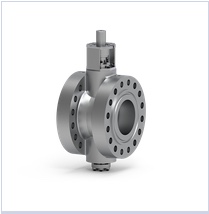Mar-2024
A new era for petrochemicals
The global demand for petrochemicals continues to rise, emphasising the need for refining and petrochemical integration in order to take advantage of this growth potential. However, the evolving energy transition is reshaping product demands, the way it is manufactured and its circularity.
Euro Petroleum
Viewed : 2395
Article Summary
Led by Suleyman Ozmen, Managing Director, 3P18 Independent Consultants LLC, our distinguished panellists comprising of Güven Kaya, Member of the Board, SASA POLYESTER SANAYI A.Ş., Piotr Baranowski, EMBA, Director, Development Projects Department, Orlen S.A, Levent Atmaca, MSc. MBA, Strategic Business Development Leader, Dow & SULTAN GARAYEV, Corporate Strategy and Development Group Director, SOCAR Türkiye joined us at IDW – Downstream Conference 2023 in Istanbul to discuss this new era for petrochemicals.
Impact of the Energy Transition
The energy transition is deeply affecting and shaping the future of the petrochemical industry in several ways. There is now an ever-growing demand for sustainable feedstocks and energy sources, including bio-based feedstocks derived from renewable recourses like biomass and agricultural waste, green hydrogen. Smaller refineries, or those not integrated with petrochemical complexes, have an opportunity now to become major feedstock providers for petrochemicals.
Electrification and hydrogen are also coming to the forefront. With petrochemical processes becoming more electrified, hydrogen is set to play a fundamental role in the industry’s evolution. Companies are also exploring ways to capture carbon emissions from their operations and use them to produce valuable products such as chemicals and fuels. Industry is currently piloting the production of green hydrogen and co-processing of other feedstocks e.g that are being produced from chemical recycling, and by 2026 this is expected to become commercially available at large commercial scale.
Circular economy and chemical recycling technologies are being developed with the aim of repurposing waste plastics and other materials into valuable feedstocks, thus reducing the environmental footprint of petrochemical commodities. Companies such as Dow are working on innovating recycling technologies and designing products with recycling and reusability in mind, responding to the dual pressures of government regulations and emission reduction mandates.
Regional Investment and Self-Sufficiency
SASA Polyester Sanayi A.S. has ambitious plans to become one of the leading players globally for polyester and polymer/olefins derivatives manufacturing. Türkiye has a vast amount of chemical imports (more than 10 million tons) and SASA is investing directly in Türkiye to reduce the regions dependency on imports. SASA is committed to building, in multiple phases, a COTC complex to become a regional leader in polyesters, olefins, and aromatics derivatives production. With the COTC Project, SASA will supply its own feedstock to grow its chemical business (polyesters) and supply feedstock to Turkish producers and regional consumers. Türkiye provides an excellent location for such investments and projects due to the accessibility of raw materials, making feedstocks easier to acquire considering the close proximity to Middle Eastern countries, large internal market, competitive construction and availability of skilled labour.
Investment in research and innovation is pivotal. Companies are investing in research to discover new catalyst technologies, new products, materials and processes that reduce energy consumption and emissions, circular economy, CO₂ capture and conversion To remain competitive within the petrochemical market, players need to implement state-of-the-art and efficient processes.
Orlen has recently invested into the expansion of the Olefin complex at the Plock refinery, signifying the largest investment in the European petrochemical industry in 20 years. These investments help to increase the share of specialty products in Orlen’s petrochemical portfolio according to their strategy and are able to become a reality thanks to the recently opened research and development centre.
Collaboration is becoming increasingly common within the petrochemical industry. Companies are forming partnerships with technology providers, start-ups, research institutions and other stakeholders to share knowledge and resources. Joint ventures and acquisitions are proving critical for meeting industry targets, and these are the future for petrochemical investments, ensuring risks and capital is shared and optimising spending, while bringing complementary resources, capabilities and access to market.
In summary, petrochemical companies are looking to invest in upgrading their assets with improved/new technology processes, accessing alternative /renewable feedstocks and produce new products with recyclability attribute/minimise single use plastics to align to sustainability goals and reduce their footprint while meeting market demand and new environmental legislation. Developing new partnerships and new business models to align and adapt to changing market dynamics is crucial.
Add your rating:
Current Rating: 3

















